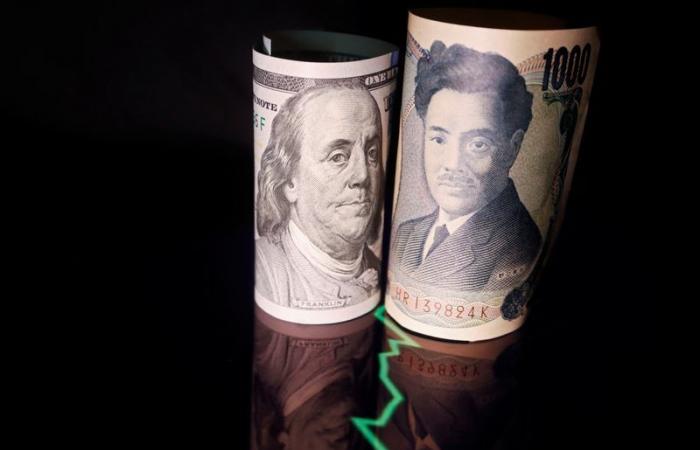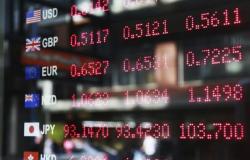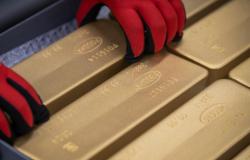The dollar flirted with a two-year high on Thursday after the Federal Reserve signaled a slowing pace of rate cuts in 2025, while the yen slipped to a one-month low ahead of a policy decision by the Bank of Japan (BOJ) later today.
The hawkish stance of Fed Chairman Jerome Powell and his team prompted traders to sharply reduce their expectations for easing next year, which sparked a broad rally in the dollar, sending currencies as as the Swiss franc, Canadian dollar and South Korean won hit historic lows in early Asian trading on Thursday.
“We believe the decision marks the start of an extended pause by the FOMC, although it is a little too early to say so explicitly,” said Nick Rees, senior foreign exchange market analyst at Monex Europe.
“We now expect US rates to remain on hold, at least until the first half of 2025. If so, an upward adjustment in market expectations should support the dollar’s rise over the coming months .”
The Swiss dollar hit a five-month low of 0.90215 per dollar, while the Canadian dollar fell to its lowest level in more than four years at 1.44655 per US dollar.
The won has reached its lowest level in 15 years.
On the other hand, the Dollar Index stabilized at 108.15, close to the two-year high of 108.27 reached on Thursday.
Mr Powell said on Wednesday that further reductions in borrowing costs now depended on further progress in reducing stubbornly high inflation, and his explicit – and repeated – references to the need to tread carefully from now on shook markets globally.
With the Fed’s final monetary policy meeting of the year over, attention now turns to those of the BOJ and the Bank of England (BoE) which conclude later on Thursday, where the It is expected that these two institutions will not change their interest rates.
The yen fell to a one-month low of 154.88 per dollar before the results, extending its 0.84% fall in the previous session.
A more measured pace of Fed cuts next year should keep U.S.-Japan rate differentials for some time to come and the yen under pressure.
“We expect that the Bank of Japan will not move at the December meeting. Not because it can afford to pause and assess the situation. But rather because it cannot afford to raise rates prematurely at this stage,” said Vishnu Varathan, head of macroeconomic research for Asia ex-Japan at Mizuho Bank.
“Despite stable inflation, household confidence remains fragile. Above all, rate hikes preceding Trump 2.0 tariffs threaten to amplify potential shocks to demand.”
The euro, for its part, rose 0.18% to $1.0370, recovering from its 1.34% decline in the previous session. Sterling was stuck near a three-week low of $1.25775.
In Australia, the Australian dollar fell to its lowest level in more than two years, at $0.6200, while the New Zealand dollar hit its lowest level since October 2022, at $0.5614.
The kiwi was pressured by data on Thursday which showed New Zealand’s economy slipped into recession in the third quarter, strengthening the case for a more aggressive cut in interest rates.






